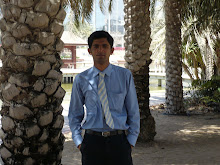The area of Karachi was known to the ancient Greeks by many names: Krokola, the place where Alexander the Great camped to prepare a fleet for Babylonia after his campaign in the Indus valley; 'Morontobara' (probably Manora island near Karachi harbour), from where Alexander's admiral Nearchus set sail; and Barbarikon, a port of the Indo-Greek Bactrian kingdom. It was later known to the Arabs as Debal, the starting point for Muhammad bin Qasim and his army in 712 CE.
Karachi was founded as "Kolachi" by Baloch tribes from Balochistan and Makran who established a small fishing community in the area[5]. Descendants of the original community still live in the area on the small island of Abdullah Goth, which is located near the Karachi Port. The original name "Kolachi" also survives in the name of a well-known Karachi locality named "Mai Kolachi."
The city was visited by Ottoman Admiral Sidi Ali Reis in 1550s and mentioned in his book Mirat ul Memalik (The Mirror of Countries), 1557 CE[6]. The present city started life as a fishing settlement when a Balochi fisherwoman called Mai Kolachi took up residence and started a family. The village that later grew out of this settlement was known as Kolachi-jo-Goth (Village of Kolachi in Sindhi). By the late 1700s the village was trading across the Arabian Sea with Muscat and the Persian Gulf region. A small fort was constructed for its protection, armed with cannons imported from Muscat. The fort had two main gateways: one facing the sea, known as Kharra Darwaaza (Brackish Gate) (Kharadar)and the other facing the Lyari River known as the Meet'ha Darwaaza (Sweet Gate) (Mithadar)[7]. The location of these gates correspond to the modern areas of Kharadar (Khārā Dar) and Mithadar (Mīṭhā Dar).
In 1795, the village became a domain of the Balochi Talpur rulers. A small factory was opened by the British in September 1799, but was closed down within a year. After sending a couple of exploratory missions to the area, the British East India Company conquered the town on February 3, 1839.
Early Karachi
Posted by
S.M. Raheel Zaki
at
Wednesday, 6 May 2009



